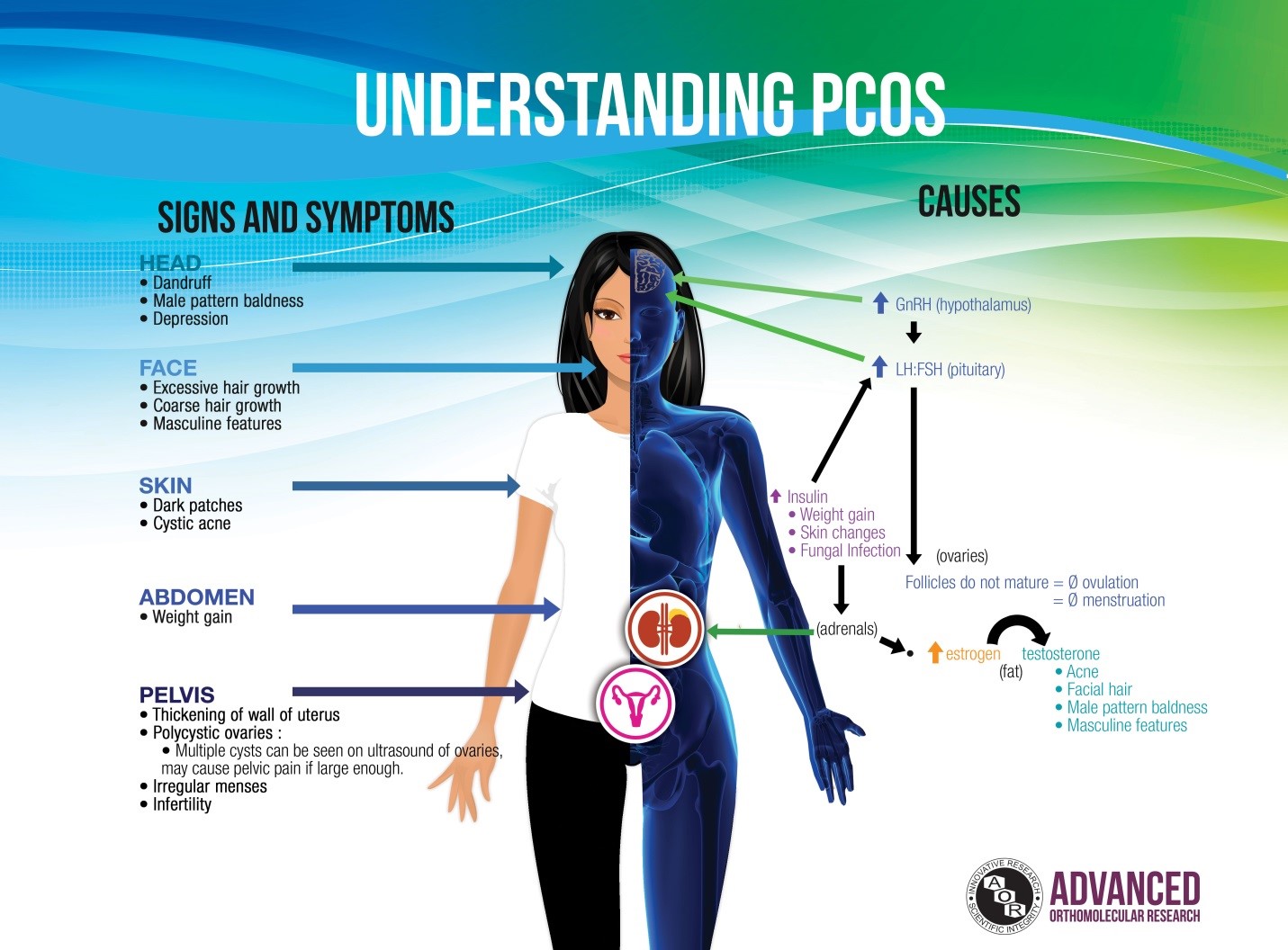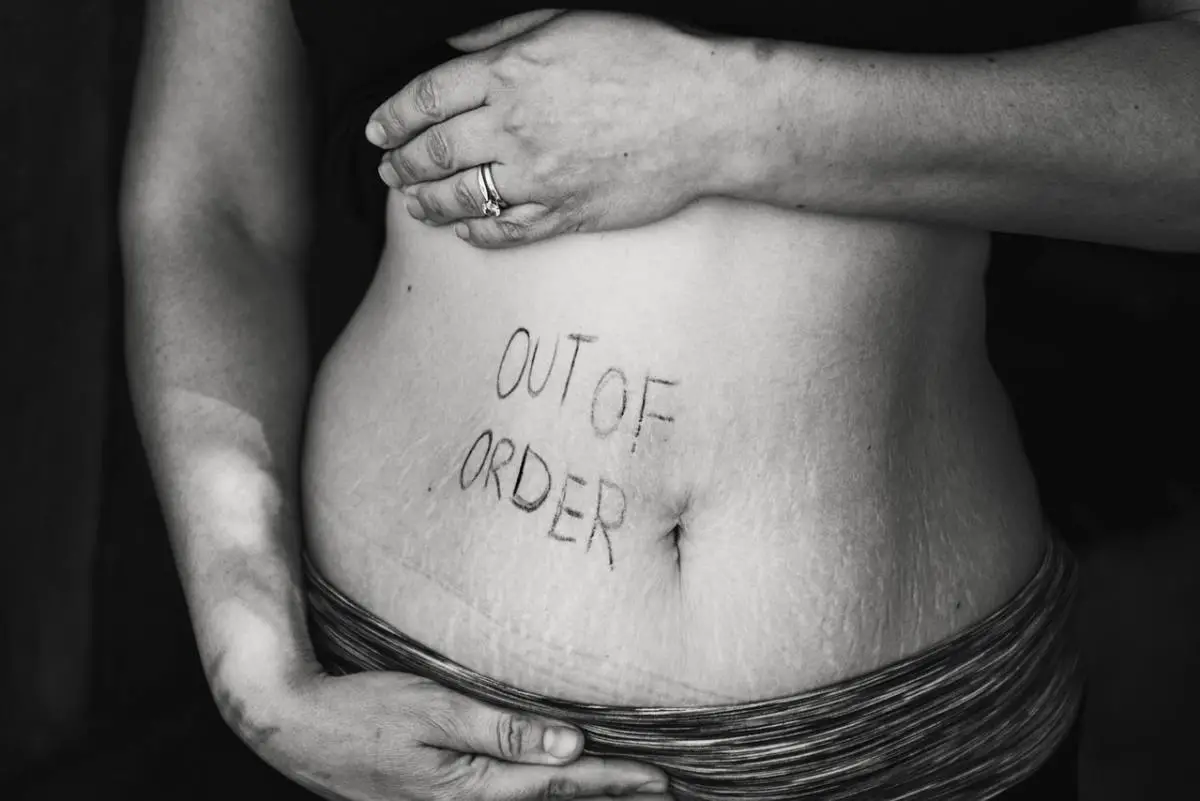I was 15 when I stopped menstruating, and I know what you ladies are thinking: Well, what the hell is wrong with that?! Trust me, I was more than happy to be without a period for a while.
But after going three months without one, then nearly 10 months, I knew I should get checked out by a doctor. After a serious of tests, the doctors came to a conclusion that I had polycystic ovarian syndrome, or PCOS. Turns out, I wasn’t alone. It’s estimated that PCOS affects between 8 – 20 percent of reproductive-aged women worldwide.
Most women aren’t diagnosed until their twenties or thirties, but PCOS affects many teens, like me, and even girls as young as 11. Also, even though women may relish not having their periods, regular menstrual cycles are important for preventing endometrial cancer.
If you aren’t menstruating on a regular basis, the lining of your uterus can grow excessively and undergo abnormal cell changes that can result in an endometrial hyperplasia. If the endometrial hyperplasia is left untreated, it can develop into endometrial cancer.
As the name suggests, you may have cysts on your ovaries, but some women don’t. Not only can the hormonal disorder affect your ovaries, it can also lead to infertility, obesity, unwanted hair growth and cystic acne.
Like I said, you don’t need to have cysts on your ovaries to have PCOS. For a diagnosis, only two of the following three criteria have to be met: irregular or absent periods, elevated levels of male sex hormones (androgens) and/or cysts on one or both of your ovaries.
According to John Nestler, the chair of the department of internal medicine at Virginia Commonwealth University, “If a woman has fewer than eight menstrual periods a year on a chronic basis, she probably has a 50 to 80 percent chance of having polycystic ovary syndrome based on that single observation. But if she has infrequent menstruation and she has elevated levels of androgens such as testosterone in the blood, than she has a greater than 90 percent chance of having the condition.”

The elevated male sex hormones are what cause many women with PCOS to suffer from excess hair growth, acne and baldness. For PCOS sufferers, the increase in insulin causes the ovaries to produce too many of these male sex hormones, such as testosterone.
Growing up, nothing made me more insecure than my excess hair growth. Personally, I had to shave my face on a regular basis so I didn’t grow a beard. I assume if I had ever let it grow, I’d have flowing Dumbledore-esque facial hair by now.
To control excess hair growth, your doctor can prescribe you certain androgen-blocking or suppressing drugs. You can also take the more traditional route and just shave, bleach or wax your unwanted hair.
Personally, I opted for laser hair removal. With laser hair removal, a laser zaps the hair follicle. Certain areas of your body will hurt more than others when it comes to laser hair removal (the upper lip area hurts like hell), but, all in all, it’s an effective way to get rid of that pesky hair.
Personally, I haven’t been affected by baldness, but many women with PCOS do suffer from it. Treating insulin resistance can help with baldness. The main thing you can do for that is remove sugar, such as regular cane sugar, high fructose corn syrup or even natural sugars, from your diet.
Regarding acne, it’s estimated that 27 percent of all women with acne also have PCOS. You may see more acne in areas that are sensitive to hormones, such as the jawline, cheeks, chin and angles of the neck.
Managing your diet can help lead to lower testosterone levels and less inflammation, thus helping you to deal with your acne. Some anti-inflammatory foods include wild salmon, broccoli, sweet potatoes and blueberries.
Treating inflammation can also help with baldness. The birth control pill is also often used to help acne and other PCOS symptoms due to it balancing your hormones, though research has found that birth control only covers up the problem.
According to the website PCOS Diet Support, a resource for anyone dealing with the syndrome, “Although birth control can balance your hormones and help with your PCOS symptoms, it is just a Band-Aid on the problem. When you come off birth control, it is likely that your PCOS symptoms will come back, unless you are proactively managing your symptoms with diet, supplements and exercise.”
I was put on birth control pills in order to manage my period, so I can say with assurance that they are little more than a Band-Aid solution. The pills did give me a semi-regular menstrual cycle, but as soon as I stopped the pill, my periods stopped again, which is why many PCOS sufferers recommend going the natural route to cure your symptoms.
The natural route — diet, supplements and exercise — can also help you manage your weight. Weight gain and inability to lose weight are issues that cause PCOS sufferers a lot of frustration. For many, the scale just keeps going up and up, no matter what you do. “Women with PCOS often say they can’t lose weight,” said Daniel Dumesic, M.D. and a PCOS specialist.
PCOS-related weight gain can lead to Type 2 diabetes, high cholesterol, high blood pressure, sleep apnea, infertility and endometrial cancer. Many of these conditions can also lead to heart disease. Women with PCOS are four to seven times more likely to suffer from a heart attack than women of the same age without PCOS. The weight gain can also be the culprit when it comes to your irregular menstrual cycle and acne.
Losing weight with PCOS is no easy task. However, following a diet that lowers insulin, such as a low fat or vegetarian diet, can help; low carb and ketogenic diets are also beneficial to shedding those pounds. Additionally, aim to exercise regularly and add in weight training. A lot of women avoid weight training, but it can help reducing body fat, insulin and androgen levels.
PCOS can also cause depression. According to Dumesic, “Women diagnosed with PCOS have higher rates of mood disorders, including depression. And being depressed makes it less likely that you’ll feel up for a workout or healthy meal prepping. Since even active ladies with PCOS still gain more weight than equally fit women without PCOS, this is a huge bummer. Year over year, that leads to accelerated weight gain that women have a hard time controlling.”
Other than depression, the hormonal disorder can also cause other mental-health issues, such as anxiety and eating disorders, so if you feel like you’re suffering from a mental-health disorder, speak to your doctor ASAP.
Many women aren’t even diagnosed with PCOS until they have trouble having children, so it’s also important to look at the impact PCOS can have on your fertility. Often, women struggling to start a family seek alternatives such as IVF, home insemination and IUI (intrauterine insemination). Personally, if I ever have children, it won’t be happening for a very long time. However, it’s still important to know your options and what PCOS may be doing to your reproductive organs.
It’s already been established that with PCOS comes high levels of androgens, and these hormones can interfere with the development the normal release of your eggs. For instance, PCOS may stop a healthy egg from being released, thus making it unavailable for fertilization and preventing you from getting pregnant. However, when you’re ready to have children, your doctor can prescribe you certain pills that can help you ovulate.
If you suspect that you might be suffering from PCOS, it’s important to go to your doctor ASAP. As of now, there is no cure for PCOS but your doctor can set you up on a plan to decrease or completely eliminate some of your PCOS symptoms. Take charge of your health!

















